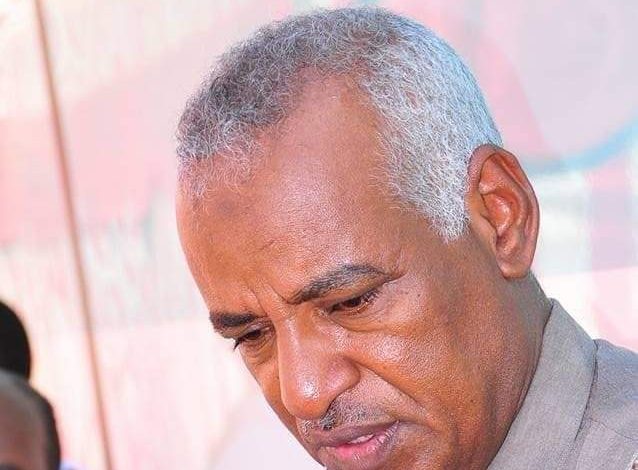“What is this Khartoum? Either it takes us, or it takes you!”

By Mahjoub Fadl Badri
The late great artist Mohamed El Amin did not intend to reprimand his enthusiastic fans when they tried to sing along with him. So, after stopping the band, he told them:
“Either you sing, or I sing!”
We borrow his words—though with a difference in context and meaning—to say to the Janjaweed:
“There are only two choices: Either Khartoum takes us, or it takes you!”
Historically, Khartoum was not the best choice to become Sudan’s capital. The first to establish a mosque and a Quranic school there was Sheikh Arbab Al-Aqayid bin Aoun, who initially resided on Tuti Island before moving to “Khartoum’s shore” in 1690, where he built his mosque and school.
Khurshid Pasha began establishing the capital in late 1826, giving rise to the city of Khartoum, centered around the governor’s residence west of the Saray (palace), the grand mosque, and government buildings. To the west, homes for administrative officials were built, along with a market surrounding the mosque. Over time, Khartoum expanded in all directions, forming neighborhoods such as Salama Al-Basha, Hilla Al-Marakebia, Hay Al-Aradi, Fareeg Al-Tarras, Hilla Al-Mogran, Hay Al-Qubt, and Sawagi Al-Mahas.
Since the foolish Janjaweed commander once drunkenly asked, in a moment of arrogance before he and his mercenary thugs were struck down by our heroic Sudanese army, “Whose Khartoum is this?”, we have provided the answer above. If he has a heart, or if he listens attentively, he will understand that Khartoum has become a national symbol for all Sudanese people—despite its geographical flaws and other shortcomings. It is now the capital of our country, and we will never accept that any Janjaweed members share our city, even if they were born there or hold documented ownership of land, including the Republican Palace itself.
Sudan is a homeland that accommodates all—except the Janjaweed, their intelligence agency collaborators, and embassy-backed agents. The latter group will not evade justice; they will stand trial before an independent Sudanese judiciary capable of judging them fairly. No general amnesty will protect them from being held accountable by victims seeking justice, nor from those advocating for public rights. Everything will be settled by law—law with a ‘Qaf’ (ق) and not a ‘Ghain’ (غ).
To the foreign mercenaries, hear us loud and clear in Sudanese dialect:
“Khartoum belongs to our Sudanese ancestors! We are the true children of Sudan! The land of Sudan—all of it, not just Khartoum—cannot contain both of us together. Just as we built it before, we will rebuild it again. Find yourselves another land, if you can!”
- Victory to our brave army!
- Glory and resilience to our fighting people!
- Disgrace and shame to our enemies and their collaborators!
— From Al-Muhaqiq website.



